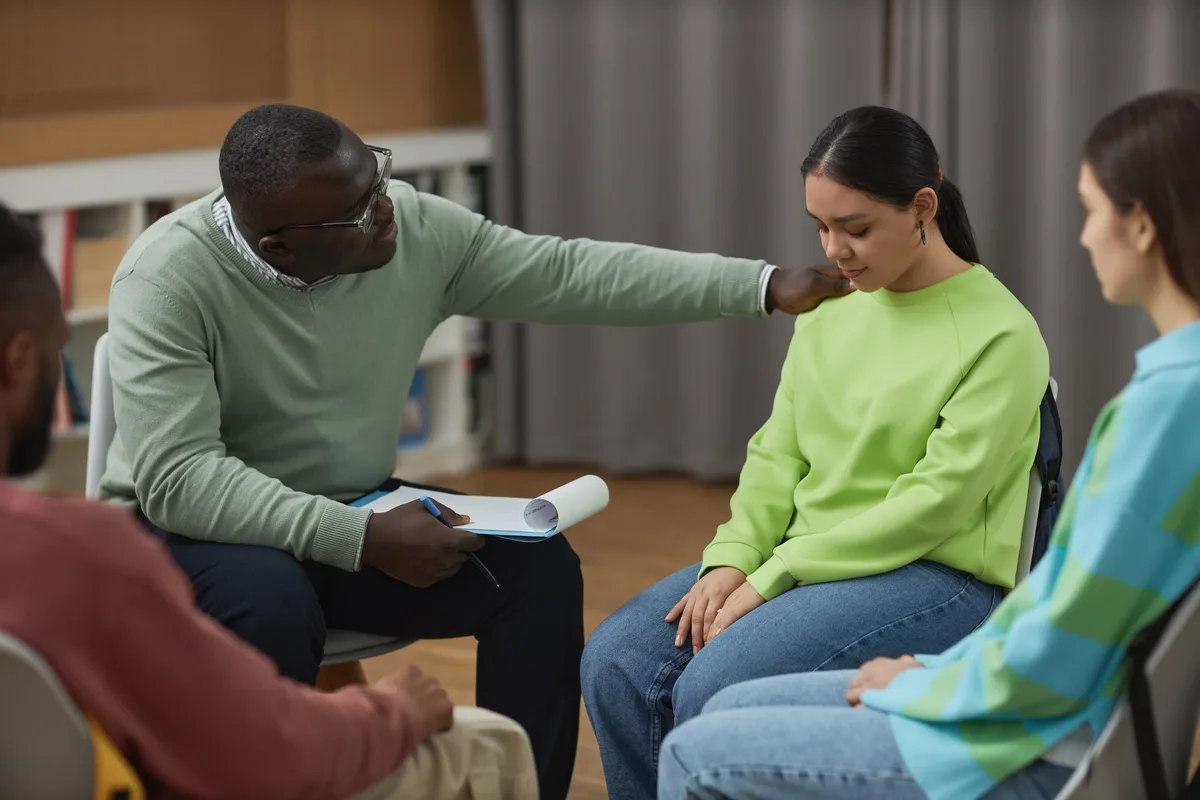24/7 Helpline:
(866) 899-111424/7 Helpline:
(866) 899-1114
Learn more about Group Therapy centers in Leonard
Group Therapy in Other Cities

Other Insurance Options

Ceridian

Aetna

Evernorth

Access to Recovery (ATR) Voucher

Sliding scale payment assistance

Covered California

Molina Healthcare

BlueCross

Magellan

CareSource

Anthem

State Farm

Premera

Cigna

UMR

BHS | Behavioral Health Systems

Holman Group

Horizon Healthcare Service

Lucent

PHCS Network











